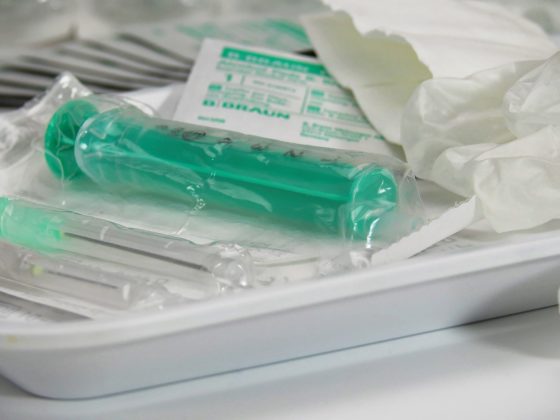Vaccinations During Pregnancy: What’s Safe?

If you’re looking for some basic information ahead of your doctor’s appointment, read on for information about what to do in each stage of your pregnancy, along with some common myths about vaccines and pregnancy.
Contents
Should I get vaccinated if I’m trying to get pregnant?
A mother’s immunity to diseases can protect a baby in the critical first few months of life, before the child vaccination schedule begins. Vaccinations in the mother create protective antibodies, some of which can be passed on to baby before birth.
The Centers for Disease Control and Prevention (CDC), the leading federal agency on health in the U.S., offers comprehensive guidelines on maternal vaccinations, including during pre-pregnancy, pregnancy, and the postpartum period. Women who are hoping to conceive should make sure they are up-to-date on their vaccines and have their immunity checked at least a month before conception. Some infections, such as rubella, are particularly dangerous to the developing baby and can cause serious birth defects or miscarriages. The vaccination for rubella also is important to have before you become pregnant, as it’s not recommended during pregnancy.
What vaccines are safe during pregnancy?
While some vaccines are recommended for women who are pregnant, such as inactivated influenza, others are not, like MMR (measles, mumps, and rubella). See below for each class of vaccinations. You also can take the Adult Vaccine Quiz on the CDC website to see which vaccines might be right for you, and bring the list in to your doctor’s office to discuss. You’ll also want to make sure you have your vaccination records from when you were in school or through your family doctor.
Recommended for Most
- Influenza (inactivated). Recommended before or during pregnancy during flu season, about the end of October. Influenza complications are more common in pregnant and postpartum women, as the immune system is weakened. If you catch the flu while pregnant, you have a higher chance of premature labor and delivery. A flu shot while pregnant also will protect you and your baby for several months after birth.
- Tdap (tetanus, diphtheria, pertussis). Whooping cough, or pertussis, is incredibly contagious and deadly, with outbreaks on the rise in the U.S. Twenty babies die each year from the disease. Regardless of prior vaccination history, the CDC recommends administration in pregnancy, ideally between 27 and 36 weeks. This protocol protects the infant before they can receive their primary vaccinations for these life-threatening infections. Side effects of the vaccine are generally mild to moderate, include erythema; swelling, pain, and tenderness at the injection site; body-ache; fatigue; or fever.
The good news is, pertussis and flu vaccines can easily be administered in the same visit.
Recommended in At-risk, Non-immune Women
- Hepatitis A. Recommended for those traveling to countries with high risk, who have a sexual partner with hepatitis A, who are recreational drug users, who have a history of chronic liver disease, and/or who lack safe water.
- Hepatitis B. Recommended for those with multiple sexual partners during the previous 6 months, who use IV drugs, and/or who have a sexual partner with Hepatitis B.
- Polio (IPV). Recommended if a pregnant woman has been exposed to infection.
Not Recommended (Contraindicated)
- BCG (tuberculosis).
- Human Papilloma Virus (HPV/genital warts). While a recent study showed the quadrivalent HPV vaccine may be safe, it is not currently recommended by CDC.
- Influenza (live/LAIV/nasal). The live vaccine is not recommended, but the inactivated vaccine is fine.
- MMR (measles, mumps and rubella).
- Pneumococcal. The safety of this group of vaccines is not well understood, so current advice is not to receive these while pregnant.
- Varicella (chickenpox).
- Zoster (shingles). Should not be given to women of childbearing age.
Vaccines for Travel
Women who are traveling abroad (to developing or tropical countries) while pregnant or planning a pregnancy should discuss the need for vaccinations with their doctor 4 to 6 weeks before the trip. The CDC’s Travelers’ Health website has current information for pregnant women and others who travel to other countries, with a drop-down menu to choose destination.
See also: Pack Your Bags! Here’s What You Need to Know about Traveling While Pregnant
Vaccinations After Birth
It is thought to be safe to receive vaccines right after giving birth and while breastfeeding, as antibodies are passed on to babies through breastmilk. The antenatal period is a good time to catch up on any overdue vaccinations, preventing infection that could be passed on to the newborn.
Vaccines and Pregnancy: Questions and Myths
You probably have more follow-up questions that this post can’t answer for your particular situation. It’s best to schedule an appointment with your doctor to go over what he or she recommends; however, we’ll go over a few common questions doctors often hear.
“What if I find out I was pregnant when I had a vaccination?”
Not all pregnancies are planned, of course! Even for those vaccinations not recommended, the risks are theoretical and very small. See your doctor immediately. It is likely that no urgent action will be needed, but he or she may wish to monitor your pregnancy more closely.
“Is there a shot for Zika?”
There is currently no vaccination for the Zika virus. The best way to protect against Zika is to avoid travel to at-risk countries if you are pregnant or trying to conceive.
See also: Zika Virus and Pregnancy: What You Need to Know
“I’ve heard that all vaccinations are unsafe during pregnancy. Is this true?”
While the leading health authorities make the recommendations above, there is some controversy over the safety of vaccinations in pregnancy. A 2015 study in the renowned journal Obstetrics and Gynecology concluded that “in theory, inactivated vaccines should be safe for use during pregnancy but specific studies or data on use during pregnancy is limited for most vaccines.” Dr. Joseph Mercola, a prominent alternative medicine proponent, states that “there’s absolutely NO sound science backing the assumption that vaccination during pregnancy is safe. On the contrary, there is a lack of available science and testing in this area.”
However, in support of the U.S. approach, the UK and Australia have very similar guidelines. All mothers-to-be should seek medical advice on vaccinations and weigh the risks and benefits; the final decision must be something the individual is comfortable with. Getting up-to-date on your vaccinations at least a month before conception or waiting until after birth may be the safest approach.








Leave a Reply
Want to join the discussion?Feel free to contribute!